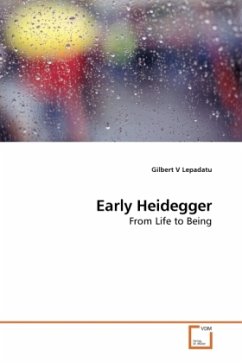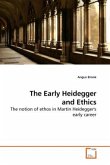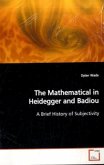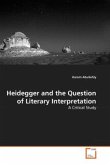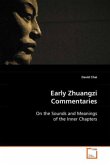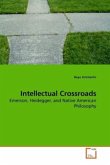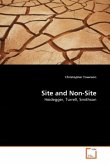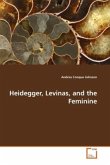Heidegger was not always preoccupied, as he himself would later come to believe, with the question regarding the sense of being. Eight years before he published his magnum opus, Sein und Zeit, in 1927 he was devoted entirely to finding a systematic way to bringing life to explicate itself as the ultimate source of meaning. In the years between 1919-1923, life , and not being , is the matter of philosophy par excellence, only to be disregarded, even refuted as a proper matter of philosophy in the subsequent years. In this book I examine the philosophical motives that led Heidegger from life to being. The purpose of this project is to trace the emergence of the thinking of being in life philosophy. I will show that the transition from life to being is not at all as radical as Heidegger wants it to be whenever he voices his concerns about the metaphysical grounds of life philosophy. When life is understood in the exact terms in which Heidegger himself understands it in the years between 1919-1923 then, I argue, the transition to being is more a radicalization, and by no means an abandonment, of life philosophy.

